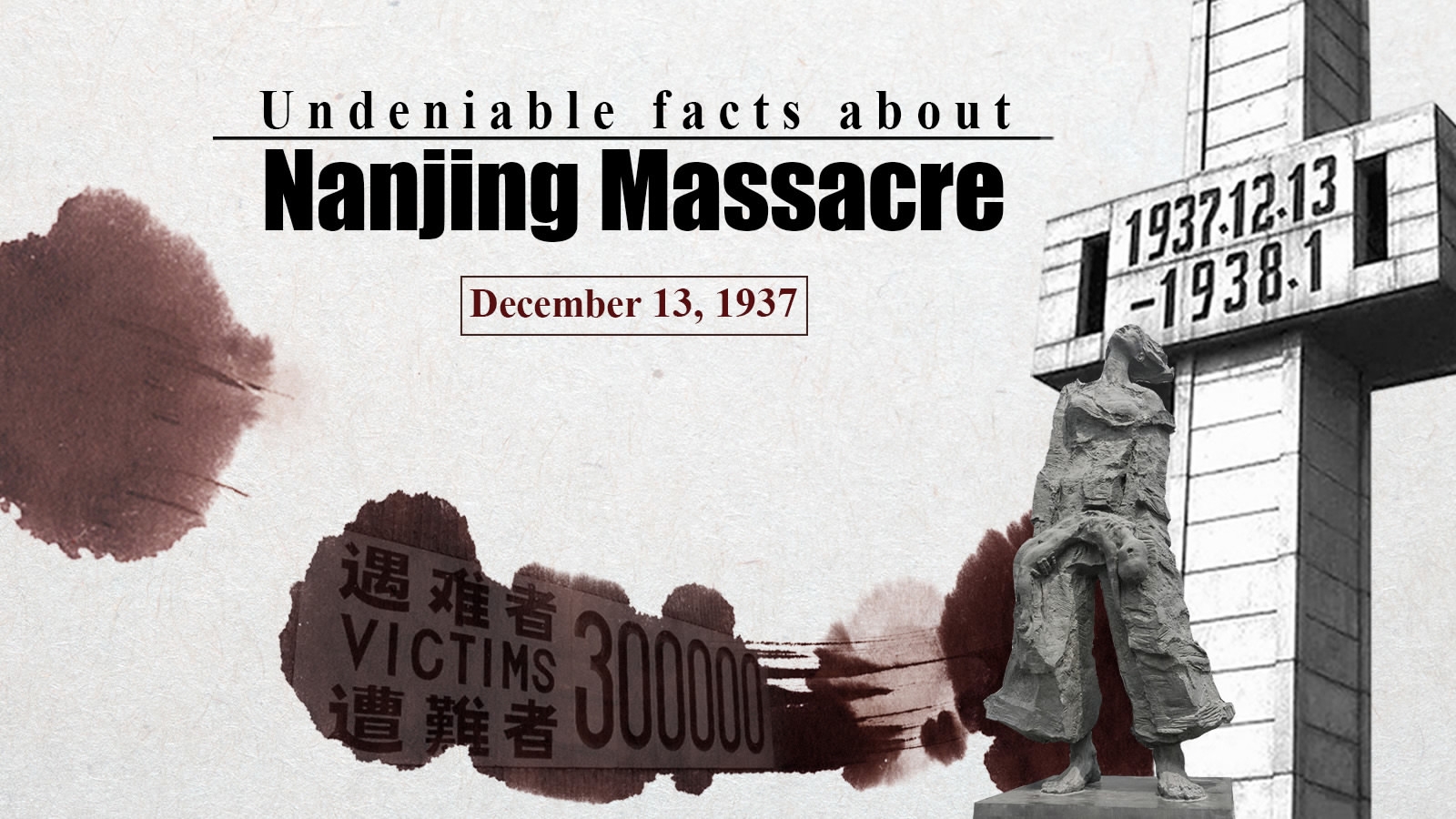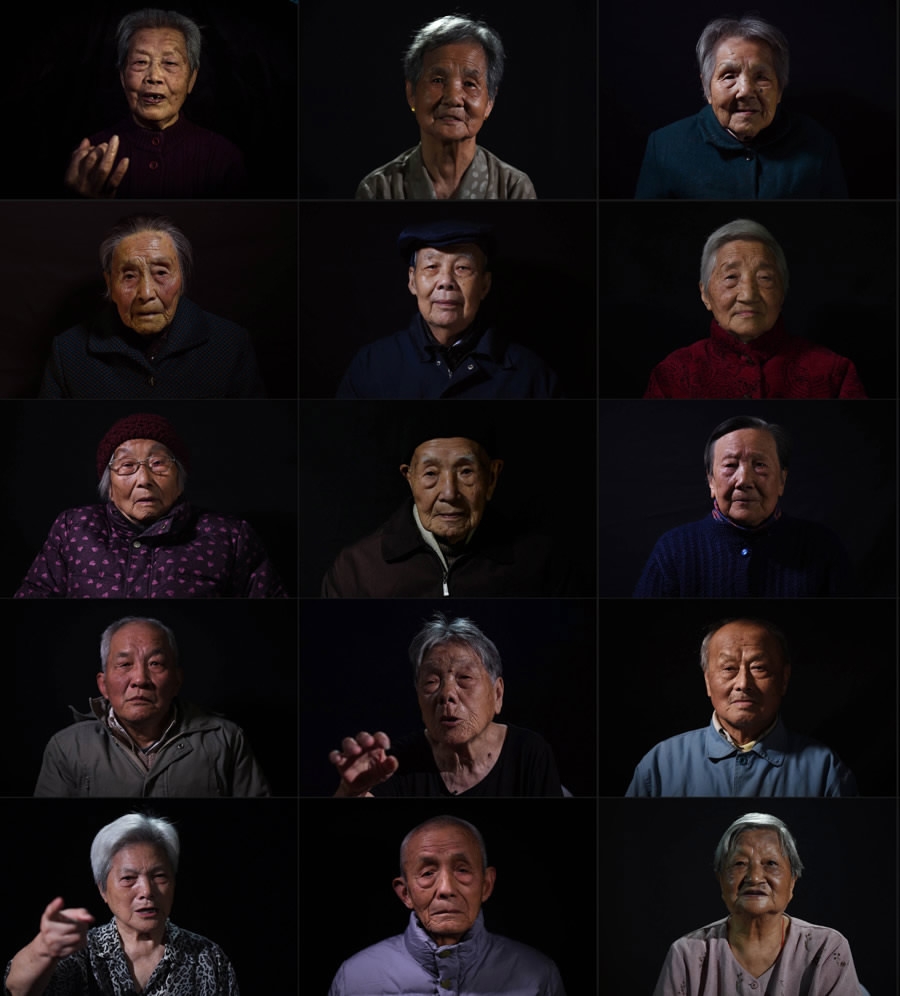
China
07:29, 13-Dec-2017
What time cannot erase: Facts about the Nanjing Massacre
CGTN

December 13 marks China's fourth National Memorial Day for Nanjing Massacre Victims, a day to mourn the more than 300,000 Chinese who lost their lives at the hands of Japanese invaders 80 years ago.
In 1937, Japan launched a full-scale invasion of China. The then capital, Nanjing, in the eastern province of Jiangsu, fell to Japanese troops on December 13.
In the 40 days that followed, Japanese forces went on a rampage, looting the city, butchering its residents and raping its women.
Diaries, photos and testimonies have shown that unarmed soldiers and civilians were shot, beheaded, burned or drowned.
The Japanese made no distinction between men and women, adults and children and executed everyone in their path after subjecting them to a range of atrocities.

CGTN Photo
CGTN Photo
Although the Nanjing Massacre was one of the deadliest mass killings in human history, the carnage is often overlooked internationally in comparison with other atrocities that left a stain on the 20th Century.
To date, the Japanese government has often worked to deny, whitewash or rewrite the events of 1937, and earlier this year the country's Education Ministry approved a new textbook that downplays the death toll from the Nanjing Massacre.
However, history speaks for itself and facts cannot be erased.
Survivors of the massacre, of whom only 97 remain alive by mid-December 2017, shared their stories and recounted the terror of those days 80 years ago.

Survivors of the Nanjing Massacre /Xinhua Photo
Survivors of the Nanjing Massacre /Xinhua Photo
Historical evidence – including photos, films, letters, news reports, diary entries and testimonies – by Chinese nationals, Japanese forces and foreign witnesses have helped piece the puzzle together.
In 2014, China's State Archives Administration (SAA) released a seven-part video series detailing the catastrophe.
In February the same year, China's top legislature designated December 13 as National Memorial Day for Nanjing Massacre Victims to remember those who lost their lives and expose the war crimes committed at the time.
"The purpose of the memorial ceremony for Nanjing Massacre victims is to recall that every good-hearted person yearns for and holds a firm stance of peace, but does not try to prolong hatred,” said Chinese President Xi Jinping during the first state ceremony for China's first National Memorial Day in 2014.

Chinese President Xi Jinping spoke at the state ceremony for China's first National Memorial Day for Nanjing Massacre Victims on December 13, 2014. /Xinhua
Chinese President Xi Jinping spoke at the state ceremony for China's first National Memorial Day for Nanjing Massacre Victims on December 13, 2014. /Xinhua
In October 2015, Nanjing Massacre historical documents were added to UNESCO’s Memory of the World Register.
The UNESCO archive aims to preserve and document records of important historical events for the benefit of present and future generations.
In October, two Canadian provinces, Ontario and Manitoba, officially designated December 13 as Nanjing Massacre Commemorative Day.

SITEMAP
Copyright © 2018 CGTN. Beijing ICP prepared NO.16065310-3
Copyright © 2018 CGTN. Beijing ICP prepared NO.16065310-3